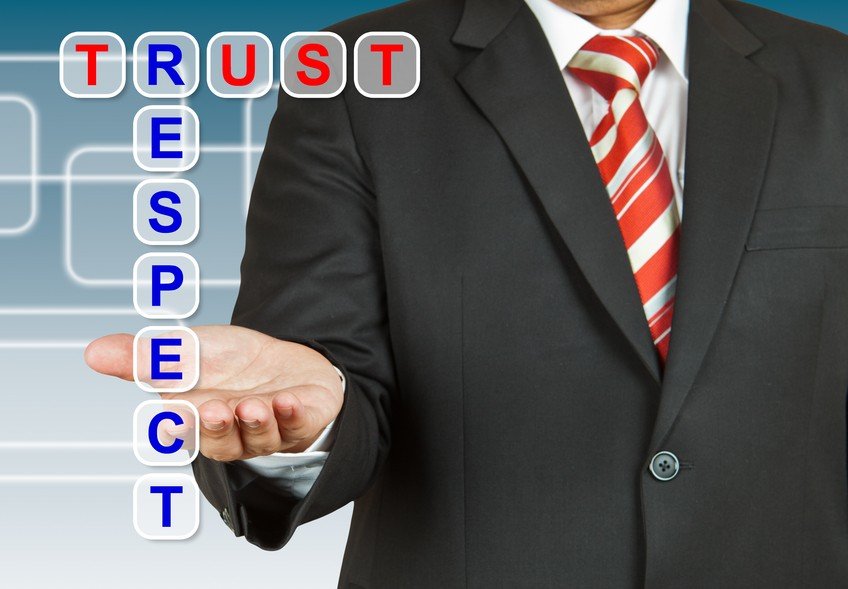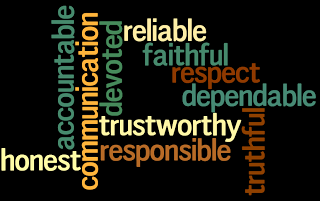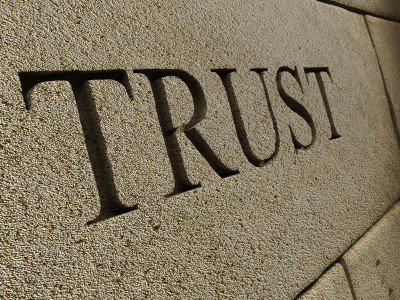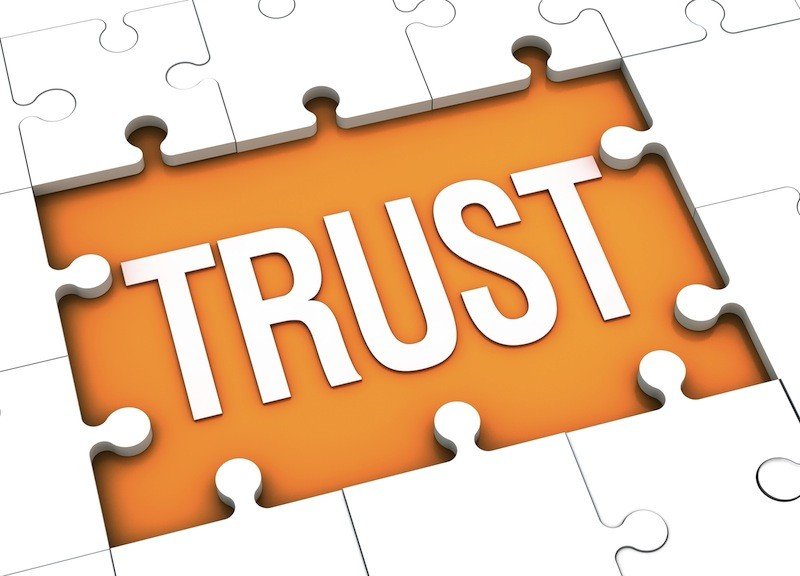
by Julia Felton | Apr 21, 2015
I was recently reading an article by Jim Rohn in which he said:
“Failure is not a single, cataclysmic event. We do not fail overnight. Failure is the inevitable result of an accumulation of poor thinking and poor choices. It is nothing more than a few errors in judgement repeated every day.
And failure’s most dangerous attribute is its subtlety. In the short term, small errors don’t seem to make any difference—we do not seem to be failing. In fact, sometimes these accumulated errors in judgement occur throughout a period of great joy and prosperity in our lives. Because there are no instant consequences to capture our attention, we simply drift from one day to the next, repeating errors, thinking the wrong thoughts, listening to the wrong voices and making the wrong choices. It is imperative to refine our philosophy in order to be able to make better choices.”
and it got me to thinking that relationships do not just disintegrate over night. They fall apart because of a consistent failure of communication.
Research studies tell us that 70% of workplace mistakes are a result of poor communication. Communication failures can be costly. It can cause loss of business, accidents, frustration, hostility, high employee turnover, low productivity and much more.
When we think about a failure in communication we often assume that two people have not spoken to each other about the issue. Maybe they have avoided having a conversation for fear of reprisals or have been afraid about how the other person will respond. However, communication is a two way street and it relies on:
- the ability to ask for what we want and
- the ability to really listen to what the other person needs.
Stephen Covey describes this ability to really listen to what the other person is saying as empathetic listening. It means listening with intent to really understand what is happening for the other person. Through empathic (from empathy) listening you can get inside another person’s frame of reference and see and experience the world through their eyes. This enables us to connect at a much deeper level.
However, empathetic listening is only possible when we are being truly authentic. When we are showing up as ourselves with no personal agenda and are open to hearing someone else’s point of view. Remaining authentic in our communication takes time and practice but impact is profound.
Julia Felton (aka The Business Wrangler) is the founder of Business HorsePower. Business leaders, entrepreneurs and executives hire her to accelerate their business performance by harnessing the energy of their people to work more collaboratively together. By aligning purpose with actions the team achieves exponential results as everyone starts pulling in the same direction.
Julia believes that business is a force for good and through designing purpose-driven businesses that leverage the laws of nature, and the herd, you can create businesses founded on the principles of connection, collaboration and community that make a significant impact in the world.

by Julia Felton | Apr 15, 2015
This week as I’ve been preparing for the Building Relationships To Build Your Business Workshop which I am hosting this weekend, I got to thinking about the relationship between trust and respect. Trust and respect are foundations of building great relationships whether in life or business, but how do these apply to leaders?.
Can you trust someone you don’t respect? Can you respect without trust? In all my years of being in business I can’t recall anyone that I really respected and who I didn’t trust. Although recently I did come across a stallion horse that I certainly respected for his power and presence, but to be honest I didn’t really trust him. In fact he intimidated me, and I was a little afraid, however I did trust myself that I knew enough to keep me safe by keeping him out of my personal space.
So whilst trust and respect can exist independently, it’s when they co-exist together that something magical happens. It is definitely a case of 1+1=3.
So let’s be clear on what are trust and respect. Trust is defined as reliance on the integrity, strength, ability, surety, etc., of a person or thing whilst respect is defined as a deep admiration for someone’s abilities, qualities or achievements.
So how do you build trust and respect with others? Here are six practices you can engage with:
1. Model The Way
“What you do speaks so loudly I cannot hear what you say. “ ~ Ralph Waldo Emerson
Both trust and respect are earned. The fastest way to earn them is to give them: Show others trust, give others respect.
2. Keep Your Commitments
Do what you say you will do. So if you agree to follow up with someone then make sure you do it. This builds credibility and shows you are reliable. And if for some reason circumstances change make sure you circle back and explain why you can no longer keep this commitment and ask to be released from your original promise.
3. Listen To Communicate
Being a great communicator means listening with your mind as well as your heart. What is being communicated by what isn’t being said? Listen to people and consider what they have to say with an open mind. Great communicators address both the “why” and the “how” of the situation. Trust your gut and learn to ask great questions.
4. Prepare for Confidence
Respect is born through the competence you show, one of the 5 pillars of trust. (The 5 pillars are Caring, Commitment, Consistency, Competence and Communication) Have the confidence born of knowledge and experience. When you speak, know what you are talking about. Remember, though: confidence is not arrogance; a confident leader is willing to admit his mistakes; hiding them is a sign of duplicity.
5. Make People Feel Safe
Create an environment where everyone feels that they can express their viewpoint. Respected leaders acknowledge they don’t know everything and they can learn a lot from other people. Keep an open mind and appreciate that everyone has something to teach you.
6. Lead From The Front
Do you want trust and respect from others? Start by trusting and respecting yourself. It means not putting yourself down when you make a mistake; own up to it and move on. Let yourself take risks based on your own values and strengths. Listen to that “inner voice” guiding your decisions.
What else are you doing to build trust and respect? I’d love to hear as the same principles apply whether you are building trust and respect with prospects, clients, suppliers or even your horse.
Julia Felton (aka The Business Wrangler) is the founder of Business HorsePower. Business leaders, entrepreneurs and executives hire her to accelerate their business performance by harnessing the energy of their people to work more collaboratively together. By aligning purpose with actions the team achieves exponential results as everyone starts pulling in the same direction.
Julia believes that business is a force for good and through designing purpose-driven businesses that leverage the laws of nature, and the herd, you can create businesses founded on the principles of connection, collaboration and community that make a significant impact in the world.

by Julia Felton | Apr 7, 2015
Trust is not an abstract, theoretical, idealistic goal forever beyond our reach. Trust—or a lack of it—is inherent in every action that we take and affects everything that we do. Trust is the cement that binds relationships, keeping spouses together, business deals intact and political systems stable. Without trust, marriages fail, voters become apathetic and organizations flounder. Without trust, no person or company can ever hope for excellence.
The truth is, trust must be carefully constructed, vigorously nurtured and constantly reinforced. Although it takes a long time to develop, it can be destroyed by a single action. And once lost, it is exceptionally difficult to re-establish.
Over the years horses have taught me much about how to build trust. The best lessons probably came from Bunny and Red, two rescue horses that were terrified of people. In order to build their trust I had to demonstrate consistent, credible behaviour. I had to do what I told them I would do, continually following through and also rewarding and acknowledging them for every action they took that enhanced our relationship. The truth is that it took a long time to build trust with these horses, but once formed we had an amazing relationship that still exists today. However, I am all too aware of how fragile that trust is and how easily it could be lost.The same principles for building trust with the horses can be applied to building more trustful relationships in business. Here are 14 things to remember when building trust, adapted from
Follow Your Conscience by Frank Sonnenberg:
1. Be straight with people. Tell it like it is.
2. Don’t be afraid to present bad news. It’s worse to sweep it under the rug.
3. Remain calm, cool and collected during difficult times.
4. Present both sides of an issue. (Let them judge for themselves.)
5. Be a good listener.
6. Disclose potential conflicts of interest.
7. Even a tiny exaggeration can destroy your credibility.
8. Always tell the truth or the truth will tell on you.
9. Your actions “off-stage” (like at an office party or on Facebook) impact your trust and credibility.
10. “Everybody does it” is a poor excuse for doing it yourself.
11. Learn how to disagree without being disagreeable.
12. Repeating a rumor is as vicious as starting one.
13. People will test you in small ways before trusting you outright.
14. The only thing worse than talking about others is talking about yourself.
If you’d like to learn how to build trust in your organisation then I’d be happy to talk with you because it has been shown that the higher the levels of trust in business the more profitable and successful the business can be.
Want to find out where you are most trusted in business, then take the free assessment here.
Julia Felton (aka The Business Wrangler) is the founder of Business HorsePower. Business leaders, entrepreneurs and executives hire her to accelerate their business performance by harnessing the energy of their people to work more collaboratively together. By aligning purpose with actions the team achieves exponential results as everyone starts pulling in the same direction.
Julia believes that business is a force for good and through designing purpose-driven businesses that leverage the laws of nature, and the herd, you can create businesses founded on the principles of connection, collaboration and community that make a significant impact in the world.

by Julia Felton | Mar 24, 2015
Trust “is both a mindset and a toolbox for 21st-century leadership”. Robert A. McDonald, Chairman, President and CEO, The Procter & Gamble Company
In today’s networked world, Trust has become the new currency – the critical competency for individuals, teams, organisations and even countries. Trust impacts every situation and relationship whether personal or professional.
Trust acts like a lubricant. It reduces friction and creates conditions for evolving high performance teams. How well the team works together is the true indicator of future success or the ability to manage through the struggle of relentless change. Without trust there would be no harmony in the team and business and dis-ease would prevail.
When we work in a high trust team things get done quicker and more easily. There is less conflict, less back-stabbing, less politics and more time spent on value added activities like innovative and customer service.
However, trust within teams does not happen overnight. As Joachim Low, the winning German Football Team World Cup coach noted “We’ve been together now for 55 days. We started this project 10 years ago, so this is the result of many years’ work, beginning with Jurgen Klinsmann. We’ve continued that work and our strength has been our constant progress. We’d not made this ultimate step before, but champions do what they will do. We believed we’d win it. We’re looking back over ten years of preparation and hard work. This team has developed a spirit which is unbelievable. We’re proud to be the first European team to win a title in Latin America, in Rio, in Brazil, in a footballing country par excellence… and this makes us proud.”
So what are the four key actions that team members must cultivate if they are to build and maintain trust with their fellow team members:
Commitment
Commitment is an important part of building trust. Every team member must acknowledge they play an important role in creating the success of the team and helping it achieve its goals. When one team member fails to deliver it has a knock on effect on everyone else in the team. This is why no matter if personal or professional obstacles present them team members must seek ways to keep their commitment to the team. Just as they need to rely on others, others must be able to rely on them.
Competence
Team members must trust that their teammates are competent and can successfully complete the tasks relevant to the team’s success. For example, each team member should be able to focus on an assigned task without worrying about teammates following through with their assigned tasks. Individual team members must realize when they need help and ask for it, instead of concealing weaknesses from the group. When team members show vulnerability to their teammates and the teammates respond in an efficient and helpful manner, trust will grow between them.
Communication
Consistent and meaningful communication is necessary for building a trusting relationship within a team. For instance, if a team member finishes a task early, they should communicate to their teammates that they are finished and ask if they can help another team member with their part of the work. If one team member discovers vital information that is relevant to the team’s success, such as a deadline change or a lack of resources, they should communicate it to the other members as soon as possible.
Collaboration
True collaboration won’t happen without a sense of trust between team members. When team members collaborate, they share creative ideas without fear that another team member will take credit for their ideas. Through collaboration innovative ideas are born. It is definitely a case of 1+1=3. When team members trust each other they are more likely to show their vulnerability, which in turn will build more trust within the team.
In summary trust anchors every successful team. When team members demonstrate commitment, competency, communication and collaboration then others will trust them and superior performance will result both in terms of productivity and profitability. However, when a team is forming who do you trust? In the words of Ernest Hemingway “The best way to find out if you can trust somebody is to trust them.”. Building trust is a two way street as you need to give trust in order to get it.
Julia Felton (aka The Business Wrangler) is the founder of Business HorsePower. Business leaders, entrepreneurs and executives hire her to accelerate their business performance by harnessing the energy of their people to work more collaboratively together. By aligning purpose with actions the team achieves exponential results as everyone starts pulling in the same direction.
Julia believes that business is a force for good and through designing purpose-driven businesses that leverage the laws of nature, and the herd, you can create businesses founded on the principles of connection, collaboration and community that make a significant impact in the world.

by Julia Felton | Apr 15, 2014
“The men who have succeeded are men who have chosen one line and stuck to it” – Andrew Carnegie
When running your own business there are so many aspects to focus on, how do you know which one to prioritize first. Well, I always tell my clients to focus first on the areas of the business where they are most TRUSTed. The areas where you are most TRUSTed in business are the areas where your natural talents lie.
There are four different areas
- Innovation Trusted
- People Trusted
- Service Trusted
- Detail Trusted
So which are you?. If you don’t know jump over now to http://bitly.com/trusttest and take a quick five question assessment which will immediately show you where you are most TRUSTed in business. And the great news is it is FREE.
Where you are most TRUSTed is where you are already naturally talented and capable of doing tasks with ease. People know they can rely on you in this area and for you it usually feels fun and energising. You could carry on doing these tasks all day and you would still feel energised at the end of it. It might even feel easy to you.
When you focus time at trying to build TRUST in the area where you are least TRUSTed because its the thing that comes most hardest to you to develop, you will find it tiring, hard work maybe even stressful over time and you will find it much harder to build Trust. So it’s ironic that often we are told to develop our weaknesses.
I know I was guilty of making my team in the corporate world focus on improving their weaknesses when in fact they would have delivered so much more value to my business unit if they had focused on developing their strengths and using their talents.
So what is your business success?
Each of the four types have a different type of business that they find greatest success in. You can be successful in many businesses where you are working with others in a team. But if you want to run your own business, your Trusted Talents will make you best suited for one of these environments:
Innovation Trusted love creative businesses
Ideas Smart. Energised, dynamic and great at getting things started. Finishing them can be a challenge. Eg Albert Einstein and Richard Branson.
With constant change and innovation. Whether it is a product or service based business, the most important thing is to have the freedom to create and express yourself.
Excels at strategy setting and product creation
People Trusted love people businesses
People Smart. Passionate, outgoing, great at networking and meeting new people. Easily distracted from the task at hand eg Marilyn Monroe and Oprah Winfrey
With ongoing contact and interaction with people. Whether it is from the stage or on the road, the most important thing is to be in front of people face-to-face.
Excels at sales and marketing activities
Service Trusted love trading businesses
Senses Smart. Compassionate, grounded, great team player and reliable at getting things done with the team. Often gets lost in the activity eg Nelson Mandela and Mother Teresa
With constant activity and quick response. Whether it is trading the markets, serving in a restaurant or saving lives, the most important thing is serving and reacting to the moment.
Excels at customer service and managing relationships
Detail Trusted love systems businesses
Process Smart. Orderly, systems orientated with a good eye for detail, strong at completing. Can find it difficult to start new things eg Mark Zuckerberg and Benjamin Franklin
With ongoing analysis and smooth systems. Whether it is working online or behind the scenes, the most important thing is to be in control of the system and details.
Excels at accounts, systems, data and detail
Just like a wheel of life, which I’m sure you are all familiar with, to my mind there us a wheel of business. You need to ensure that all the activities in your business are balanced. I can’t tell you how many businesses I have seen where the mix of energies has been unbalanced and as a result success is unable to flow. Just imagine a business owner who spends all their time focusing on their sales and marketing. That might be great as they are attracting in clients, but if they don’t have any method of staying connected to the client (service TRUSTed) or any way to manage the cash in the business (detail TRUSTed) the business will falter as it will fail to invoice and collect payment from any clients and also the client acquisition cost will be really high as failure to stay connected to previous clients means they will go somewhere where they are more valued.
So I would urge you to go and look at your business and marketing plan for year. I’m sure you have all created one right, and just make sure that all your activities for next year are balanced and aligned. And if you need any help then I would suggest that you contact me about my new IGNITE your business days where we get deep down into your business and put some rocket fuel behind your plans for this year so that we can catapult you to success because remember
Fail to Plan, Plan to Fail
Remember you can take the TEST Test at http://bitly.com/trusttest, and let me know where you are most TRUSTed in business.
Julia Felton (aka The Business Wrangler) is the founder of Business HorsePower. Business leaders, entrepreneurs and executives hire her to accelerate their business performance by harnessing the energy of their people to work more collaboratively together. By aligning purpose with actions the team achieves exponential results as everyone starts pulling in the same direction.
Julia believes that business is a force for good and through designing purpose-driven businesses that leverage the laws of nature, and the herd, you can create businesses founded on the principles of connection, collaboration and community that make a significant impact in the world.

by Julia Felton | Oct 4, 2013
You know when you know something, but you don’t know it, that is what has been happening to me recently and it reminds me of the old Zen saying “To know and not to do is not yet to know”. I have known for some time about the importance of developing trust in relationships but it was during an exercise at a workshop with the amazing Jackie Lowe Stephenson and the Spirit of Leadership that the lesson finally landed.
Jackie and her husband Herb do the most amazing transformational work with horses and I was able to spend two days in the company of her and her inspiring herd of horses (which by the way also includes a Zebra, Holly). Jackie’s herd are masters at teaching you about building trust and connection and managing your energy. Approach them with too much energy and they will run away, not have the right intention and commitment, they’ll let you know. Need connection from a place of wanting and neediness and they will not engage with you. They taught me many lessons and reminded me, whilst we were hanging out in the fields, of why we need to lose attachment to the outcome and just be in relationship. Once you just be, rather than do, the relationship can begin.
So for me there are three principles that create the magic formula for developing a great relationship whether with your horse or with your work colleagues.
Bond + trust+ respect = foundations for a great relationship
Without these qualities in place any relationship will falter when put to the test.
My great AHA occurred when I was asked to lead my team with a blind fold on. As a walked around the arena I had to rely on my team-mates to keep me and them from walking into danger. It was a humbling position to be in knowing that I could not do it by myself and needing to trust my team-mates implicitly to keep me out of danger. And it was during this time that I realised that my horse must trust me implicitly. As I take my pony Bracken to new places she has never been before (she is figuratively blind folded) as she does not know what is round the corner. She has to trust me implicitly that I will not take her into a dangerous situation. Now I have spent nearly 21/2 years developing a relationship with Bracken and she does trust me but would another horse. It is an interesting thing to think about.
And for those of you in business I would extend this analogy to what is happening in the workplace. We are living in uncertain time. Change is happening rapidly and as a leader you are continually leading into the unknown (like being blindfolded). The landscape changes on a daily basis so you cannot know all the hazards ahead. All you can do is set the direction and then trust that others on your team will help steer you around the challenges that come up. But what if trust is lacking in your business and you don’t trust your team members. How challenging leadership becomes.
So today, whether at work or with your horse make sure that you create and develop a trustful environment by being true to your character and being competent in your job. Because as Stephen M.R Covey noted the key attributes of building trust are character and competence.
I’d love to hear on the facebook page about how you are developing trust in your relationships
Julia Felton (aka The Business Wrangler) is the founder of Business HorsePower. Business leaders, entrepreneurs and executives hire her to accelerate their business performance by harnessing the energy of their people to work more collaboratively together. By aligning purpose with actions the team achieves exponential results as everyone starts pulling in the same direction.
Julia believes that business is a force for good and through designing purpose-driven businesses that leverage the laws of nature, and the herd, you can create businesses founded on the principles of connection, collaboration and community that make a significant impact in the world.

by Julia Felton | May 17, 2013
“The most precious asset of all is something that, if lost, can only be restored not by words, but by actions; that is the asset of trust and confidence.“ — British Prime Minister Gordon Brown on CNN
Never before has trust been a more crucial asset or a more career-critical skill for individuals or organizations than it is right now. Trust—more than Euros, Yen, or dollars—is the new currency of business. Trust is not something to be taken for granted; it is something to be built up, valued, and carefully preserved. However, all of us will undoubtedly deal with broken trust at some time—personally and professionally.
The idea that trust cannot be restored once lost is a myth. Though it may be difficult, in most cases, lost trust can be restored—and often even enhanced! Prioritizing trust—actively seeking to establish it, grow it, restore it, and wisely extend it—will bring personal and organizational dividends that far exceed any other path.
Join Stephen M. R. Covey at the first ever Trust Conference to learn what you can do to restore trust in your most critical relationships
Julia Felton (aka The Business Wrangler) is the founder of Business HorsePower. Business leaders, entrepreneurs and executives hire her to accelerate their business performance by harnessing the energy of their people to work more collaboratively together. By aligning purpose with actions the team achieves exponential results as everyone starts pulling in the same direction.
Julia believes that business is a force for good and through designing purpose-driven businesses that leverage the laws of nature, and the herd, you can create businesses founded on the principles of connection, collaboration and community that make a significant impact in the world.

by Julia Felton | Feb 27, 2013
Trust is the unwritten social contract that underpins everything in our society. We all know how it feels when trust is broken or lost. More importantly we all understand what the effects of a loss of trust can be.
Yet trust allows us to great things. Through trust we can work together effectively. We can rely on our friends and family. We can speed up communication and action.
All because of trust.
Trust in Business
Trust relationships also cement every business activity. Trust in business exists through our external interactions with other organisations while internally it draws our business together. At the most basic level trust is needed for every employee contract or commercial transaction.
But trust in business is a much more vital concept in the 21st Century. As the certainties of the past are being undermined, economics and performance are being affected.
Is the concept of trust in your business a central part of your strategy?
The Meaning of Trust
Trust, in brief, is the confident expectation of something. Whether we are working at the highest level of a business or as an employee we all need to be confident in something in the future. We expect that our business will continue or our job will be safe.
Yet trust is sidelined as too ‘fuzzy’ to be measured or understood. It certainly can’t be applied. This simply is not true. We measure the effects of trust everyday.
What areas are affected by trust in business?
1. Turnover and Profit
2. Sales Performance
3. Referred Business
4. Employee Satisfaction and Engagement
5. Productivity
6. Project and Product Delivery
7. Customer Satisfaction and Loyalty
8. Brand Awareness and Marketing
The Measure of Trust
We can see the effect of trust but what would be the impact if we could go straight to the source and measure it directly?
It is safe to say that what and who we trust, we value. In business, what we value can be broken down into five different aspects.
What areas are affected by trust in business?
Innovation
Sometimes you need creative solutions and plans, ‘out of the box thinking’. Who do you value for this aspect? Chances are you trust them as well.
Communication
Every business needs good communication, internally and externally. The ability to listen and share information is a valuable skill and ability. Who do you trust most in this aspect?
Service
All businesses need to take care of the people that matter to them, whether that is team members or customers. Who do you rely on most to give excellent service?
Measurement
If we don’t know how we’ve done, how do we get better? Who do you lean on most for your measurement and reporting?
Spirit
This is the ability to stay resilient and positive. This is often the quality of leadership. Who do you trust to lead?
If a business or a team member loses their value in one of these aspects, it is easy to undermine what else they provide us. By assessing all five areas we can quickly become aware of where we have hidden, unused talent that can be unlocked.
If you want to learn more about TRUST and it’s importance in both the workplace and life you will not want to miss The Trust Conference. Book now to benefit from the early bird discounts
Julia Felton (aka The Business Wrangler) is the founder of Business HorsePower. Business leaders, entrepreneurs and executives hire her to accelerate their business performance by harnessing the energy of their people to work more collaboratively together. By aligning purpose with actions the team achieves exponential results as everyone starts pulling in the same direction.
Julia believes that business is a force for good and through designing purpose-driven businesses that leverage the laws of nature, and the herd, you can create businesses founded on the principles of connection, collaboration and community that make a significant impact in the world.

by Julia Felton | Dec 20, 2012
When we hear a team member say of another team in the company “We can’t trust them with that” or a manager say to a team member “I don’t trust you with this task” we are hearing the word ‘trust’ used in a very explicit way. Yet trust (and distrust) shows up more often in invisible ways:
- A team member is given extra responsibility.
- A reorganisation moves some teams into more critical positions.
- Customers stop buying a particular product…
When we have a suspicion that trust has fallen, we may open up some conversations or make some enquiries but the dynamics of trust remain grey and cloudy. Within Talent Dynamics, the invisible becomes visible by recognising trust as having five distinct aspects. These aspects are all measurable and allow us to see where any individual, team and company are most trusted and least trusted. When we know this within a team, we can transform results rapidly by aligning activities to those we trust most in them and build the team to support each member where trust is lowest.
Here are the five aspects of trust:
Innovation
This is the degree to which your team trusts that you can be consistently relied on to come up with creative solutions and plans. Dynamo frequency profiles naturally create the most trust in this area.
Communication
This is the degree to which your team trusts that you can be consistently relied on to share information and listen effectively. Blaze
frequency profiles naturally create the most trust in this area.
Service
This is the degree to which your team trusts that you can be consistently relied on to look after customers and team members.
Tempo frequency profiles naturally create the most trust in this area.
Measurement
This is the degree to which your team trusts that you can be consistently relied on to measure and refine your own performance.
Steel frequency profiles naturally create the most trust in this area.
Spirit
This is the degree to which your team trusts that you can be consistently relied on to remain resilient and positive. Those who build
this on their path through their leadership naturally create the most trust in this area.
When we stop trusting a team member or an entire team to deliver in a particular area, we often let the factor in which we are not trusting them to overshadow any areas in which we do trust them and so throw out their strength with their weakness.
By assessing all five areas, we can quickly become aware of where we have hidden, unutilized talent just waiting to be unlocked.
We are excited that Stephen R. Covey will be the keynote speaker at the Talent Dynamics Trust Conference next year.
Want to discover your frequency. Take the Talent Dynamics Test here.
Julia Felton (aka The Business Wrangler) is the founder of Business HorsePower. Business leaders, entrepreneurs and executives hire her to accelerate their business performance by harnessing the energy of their people to work more collaboratively together. By aligning purpose with actions the team achieves exponential results as everyone starts pulling in the same direction.
Julia believes that business is a force for good and through designing purpose-driven businesses that leverage the laws of nature, and the herd, you can create businesses founded on the principles of connection, collaboration and community that make a significant impact in the world.

by Julia Felton | Aug 29, 2012
We’ve learned that great teams beat great players, leaders and competitors every time. We found that the most sabotaging influence to team cohesion and performance is ego and “headwind hogging.” Now let me identify the two most important ingredients for building high-performing teams.
TRUST
As Patrick Lencioni wrote in his excellent book The Five Dysfunctions of a Team, the No. 1 dysfunction is an absence of trust. Interestingly, you don’t even need to like each other, but you do have to trust each other to form the cohesion and solidarity needed for high performance.
So what do you do to build more trust?
I’m a believer in always giving what you want first. If you want trust from your team, give trust first. Things that foster trust are transparency, honesty, vulnerability and complete integrity.
Brainstorm five ways you can demonstrate trust to your team.
Thought starters:
Open the Kimono: Open up your books. Share the good, the bad and the ugly of your financial statements. Become far more transparent with how information is shared and communicated.
Marionette No More: Drop the puppet strings. Give others more responsibility and decision-making power without micromanagement and approvals. Train, but then trust them. Let them lead.
Expose Your Chest: As my friend Waldo Waldman teaches about leadership, “expose your chest to daggers,” meaning, show your vulnerability first. Be more open and honest in the disclosure of your own fears, failures and shortcomings.
Remember, people relate and connect more with your struggles than your successes. What do you fear? When do you feel scared? When have you tried and failed? When does your confidence waver? Share that with your team and you will witness the veil of false posture lifted from your team.
Perform Pancreaticoduodenectomies: This is the surgery you need if you have pancreatic cancer—one of the most deadly of all cancers. Cancer in your team is gossip, negative talk, the “meeting after the meeting” and separate alliances or factions within the team. First, never do such things yourself. Second, stop others whenever they do them. Cancer cannot be tolerated; it has to be killed and surgically cut out before it becomes too widespread. Left too long it will destroy the whole body (team).
Be Worthy: To be trusted you first must be trustworthy. Demonstrate you are by doing what you say you will do and being where you say you will be precisely when you say you will be there. Deliver on your promises and be the example you want everyone else to follow. Simple, easy and pretty straightforward, right? Why do so many screw this one up, then? Baffles me.
Decide your five and start doing them this week.
APPRECIATION
“Perhaps no human need is more neglected in the workplace than to feel valued,” as written in The Way We Are Working Isn’t Working by Tony Schwartz. Feeling significant is as basic as food. This begins at birth and never goes away. The need for significance at work is a manifestation of our inborn hunger for meaning in our lives.
Here’s the trick, though: Just like in marriage, people have different “love languages,” and have different ways of feeling valued and appreciated. If you just do it as you would want it done, there’s a great chance you will be wrong and miss the mark completely. The answer is to ASK them (same goes for your spouse).
Do This: Pick five people on your team. Sit down with each of them and explain how much you appreciate them, but are unsure how to express that fully, correctly or in the manner which matters most to them. Ask them when in the past they have felt the most appreciated and what they would like to see from you.
Decide your five and start doing that this week.
There you have it—the formula for building fantastically successful teams. Do just 20 percent of what we talked about here and you will greatly improve the performance of your team. Diligently work on all of it and you and your team will be unstoppable in your industry. Go for unstoppable!
Julia Felton (aka The Business Wrangler) is the founder of Business HorsePower. Business leaders, entrepreneurs and executives hire her to accelerate their business performance by harnessing the energy of their people to work more collaboratively together. By aligning purpose with actions the team achieves exponential results as everyone starts pulling in the same direction.
Julia believes that business is a force for good and through designing purpose-driven businesses that leverage the laws of nature, and the herd, you can create businesses founded on the principles of connection, collaboration and community that make a significant impact in the world.














